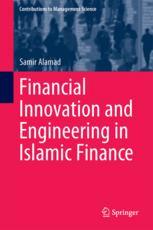

Most ebook files are in PDF format, so you can easily read them using various software such as Foxit Reader or directly on the Google Chrome browser.
Some ebook files are released by publishers in other formats such as .awz, .mobi, .epub, .fb2, etc. You may need to install specific software to read these formats on mobile/PC, such as Calibre.
Please read the tutorial at this link: https://ebookbell.com/faq
We offer FREE conversion to the popular formats you request; however, this may take some time. Therefore, right after payment, please email us, and we will try to provide the service as quickly as possible.
For some exceptional file formats or broken links (if any), please refrain from opening any disputes. Instead, email us first, and we will try to assist within a maximum of 6 hours.
EbookBell Team

4.4
82 reviewsThis book provides two important contributions to existing theories in the financial innovation literature. First, it extends the existing literature of innovation orientation to a completely new field and construct that is based on a religious imperative as a framework within which financial innovation is constrained. It explains how an innovation orientation in IFIs can be directed within religious rules, which indicates that innovation orientation in IFIs is a learning philosophy. Second, the book introduces and examines the plasticity of Shariah as a shared boundary object and its dynamic role in managing tension and conflicting values in the financial innovation process. Furthermore, building on the empirical results, the study illustrates the insights that each theoretical lens affords into practices of collaboration and develops a novel analytical framework for understanding religious orientation towards financial innovation. This practical contribution, of the developed framework, could form the basis for a standardised framework for the Islamic finance industry. The book concludes by noting the policy and managerial implications of its findings and provides directions for further research.